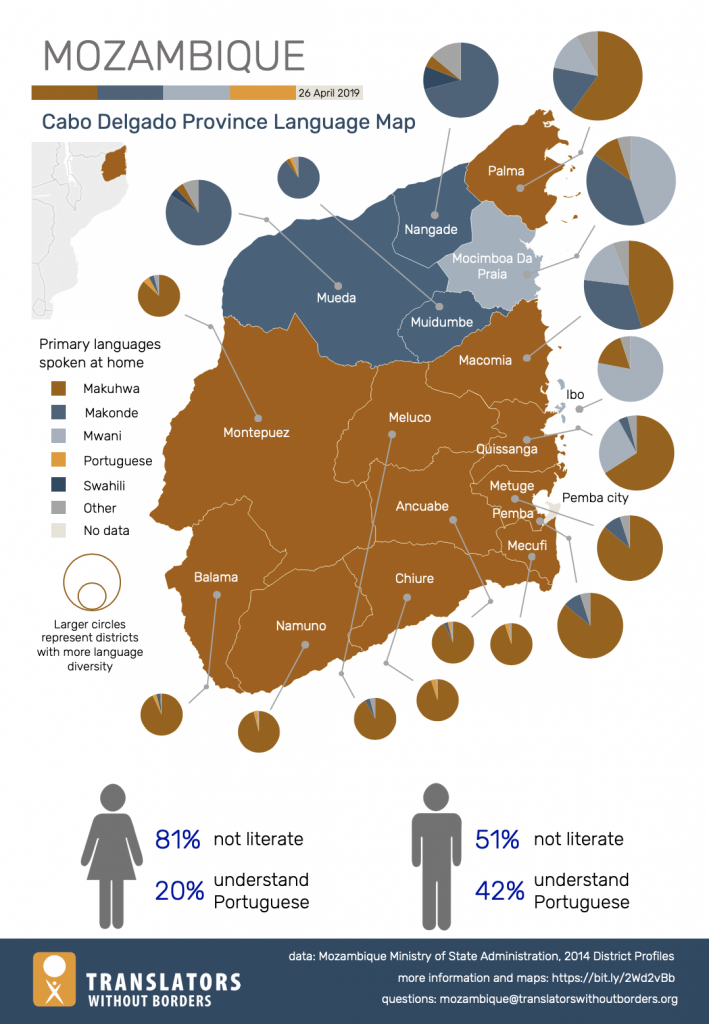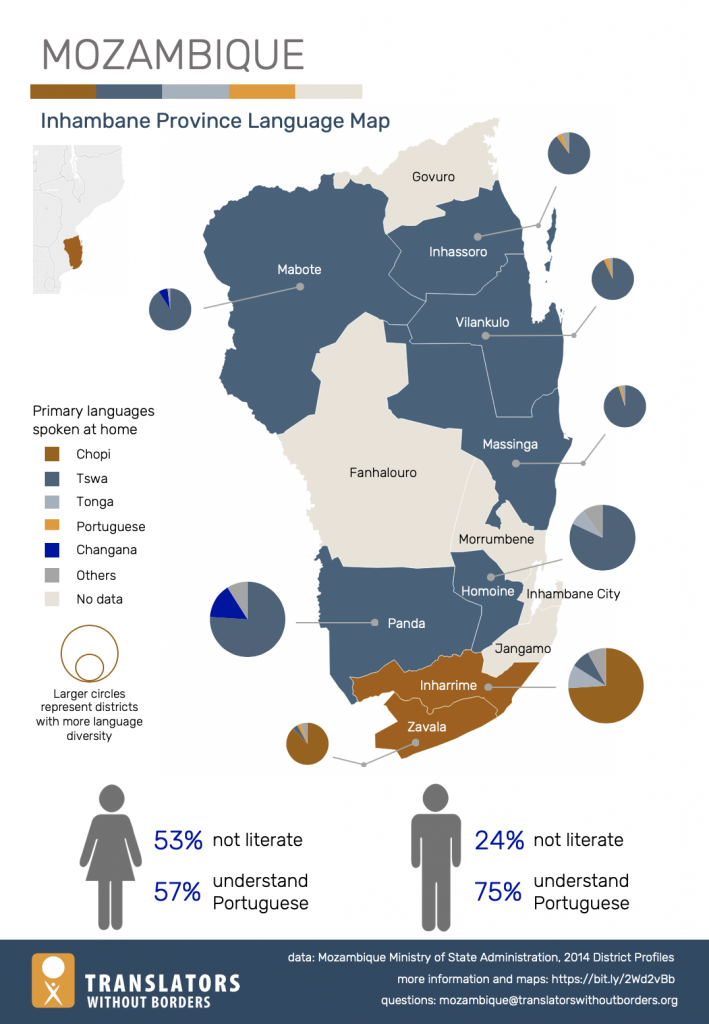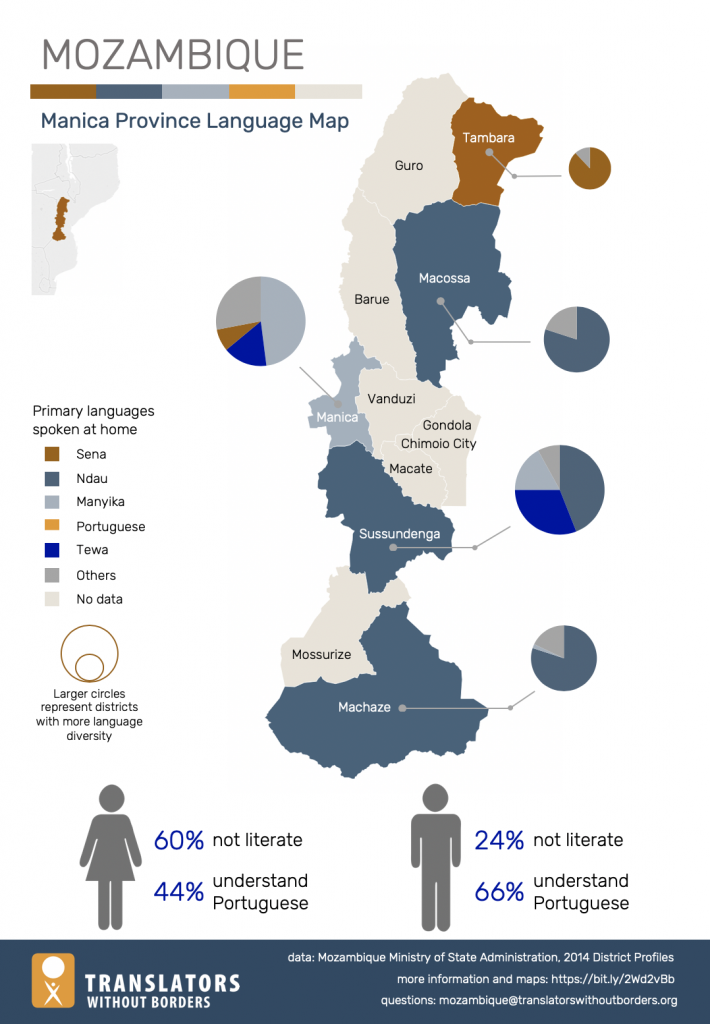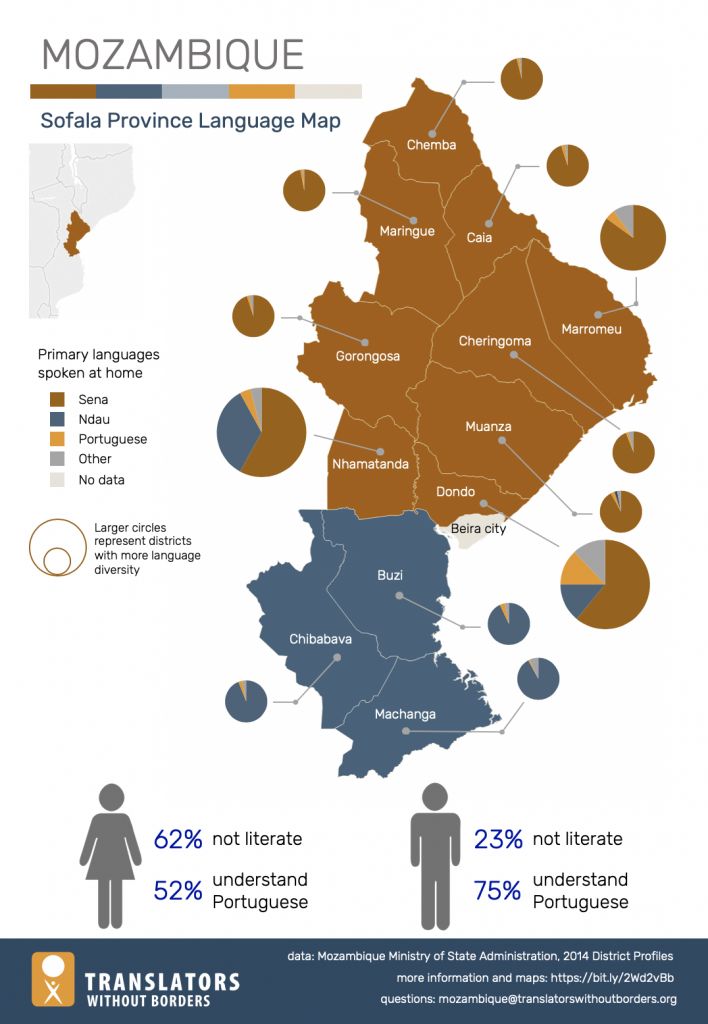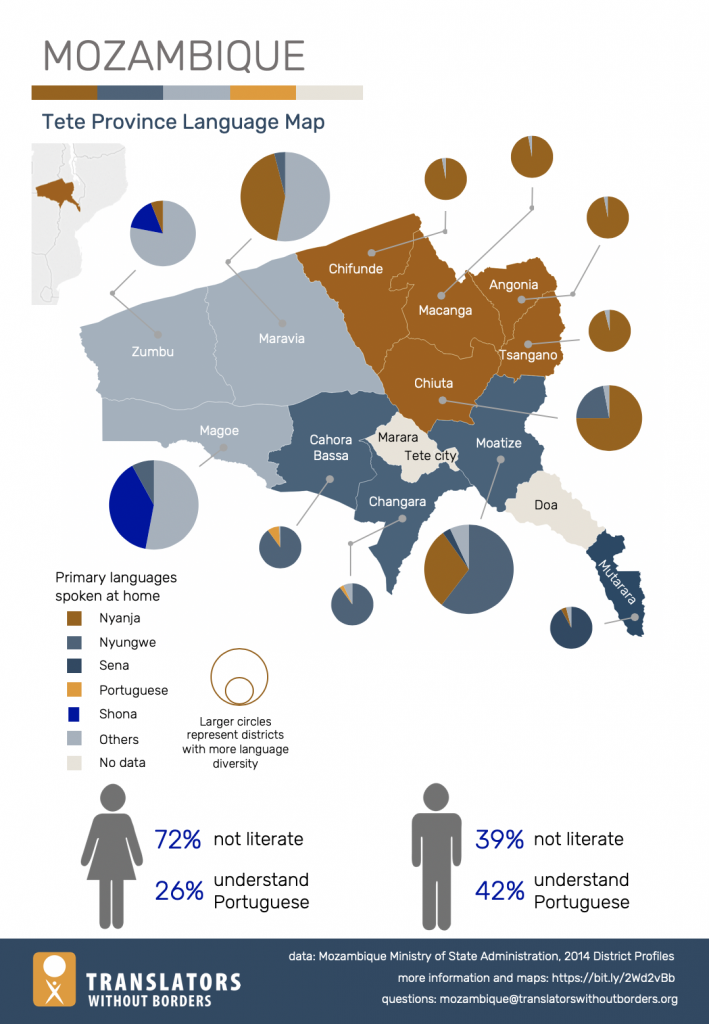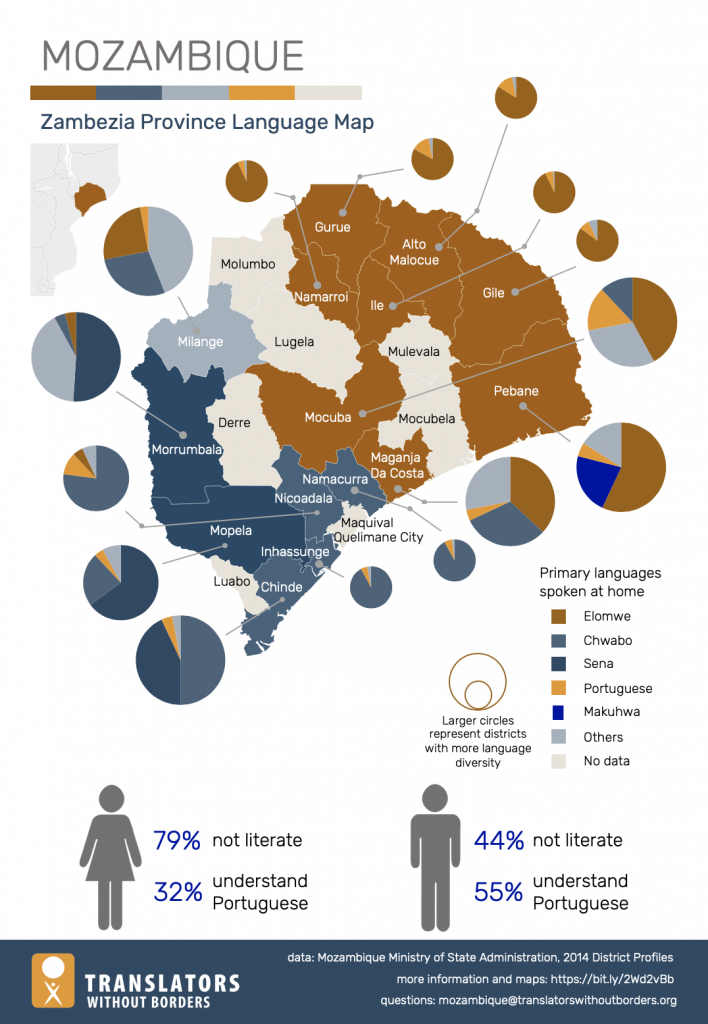To communicate with people affected by Cyclone Idai and Cyclone Kenneth, humanitarian responders need to know which languages people speak, and where. They need to know which formats are best to use when communicating with women, or less literate communities.
Mozambicans speak more than 40 languages, and most women and many men cannot read or write in any language. Portuguese, the official language, is not widely spoken or understood. A language may be widely understood in one area but not in another.
Language data and mapping are key to ensuring responders and crisis-affected people can communicate. The provincial language maps below are designed as a resource for responders as they plan their communications.
More language data is needed. To fill the gap in humanitarian data on language, responders should add four simple questions to assessment questionnaires:
- What is the main language you speak at home?
- Which language do you prefer to receive written information in?
- Which language do you prefer to receive verbal information in?
- How do you prefer to receive information (word-of-mouth, radio, TV, poster, leaflet, phone call, SMS, loudspeaker, etc.)?
If you’re interested in contributing language data, learn more about how you can help with this Mozambique Language Data Guide.
To learn more about Translators without Borders’ work in crisis response, and to get support for your program, email us: mozambique@translatorswithoutborders.org.
